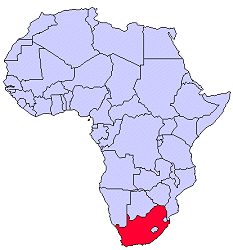
Debating the future of the BRICS with South African policy makers and academics radically differs from anything one can expect to hear during discussions in Brazil, Russia, India or China. The latter are ebullient and brimming with self-confidence, certain that an irreversible process of multipolarization has begun, giving birth to a system in which they will be indispensable pillars and agenda-setters. During recent meetings at the South African Department of the National Treasury in Pretoria and a workshop organized by the South African Institute of International Affairs (SAIIA), on the other hand, I was struck a far more restrained and at times even introspective tone that marked the conversation.
Economically, South Africa is by far the smallest BRICS member. While it boasts Africa’s largest GDP, it does not figure among the world’s largest twenty economies and it is a G20 member largely to increase the group’s regional representation and global legitimacy. In addition, there is little reason to believe that South Africa will climb up the ranks. If current trends continue, Nigeria — and one day Egypt and Ethiopia – will challenge and overtake the continent’s leader, and South Africa may very well slip out of the 30 largest economies. The rest of the BRICS, by contrast, are expecting to continue their rise and eventually overtake traditional powers. This is, after all, the very notion that undergirds and sustains the idea of the BRICS, allowing them to consistently punch above their current weight. Hence, in addition to its smaller size, South Africa lacks the growth outlook that adds to the other members’ strategic clout. As a consequence, Jim O’Neill, who coined the term, has argued that South Africa did not deserve to be a BRICS member, charging that it did not even qualify to be part of the ‘Next11’, another (much lesser known) grouping he invented.
In this context, South African analysts and policy makers have articulated the ‘gateway narrative’: Given its leading position on the continent, South Africa represents the entry point to Africa, thus standing not only for itself at both the BRICS and the G20, but also for the emerging African continent as a whole (which, in its entirety, boasts growth figures that are indeed worth of BRICS membership). As a South African policy maker stressed, “South Africa’s destiny is tied to Africa’s destiny.” This is not just mere rhetoric: Contrary to other BRICS members, which do not pretend to represent their region, South African policy makers actually consult with their African neighbors before articulating their strategy at BRICS and G20 summits.
Of course, this idea is far from problem-free. Representing 55 countries is extremely difficult, also because African countries are bound to have contradicting interests. In addition, South Africa’s reality strongly diverges from that of far poorer African countries that face different domestic and international challenges. Foreign investors — such as Brazil and China — are capable of engaging directly in other regions and do not need the South African ‘gateway’ – also because doing business in South Africa is not necessarily easier than in places, such as Rwanda or Ghana.
South Africa’s strategy, however, may very well succeed. At the debate in Pretoria, representatives from Ethiopia, Malawi, Sudan and Nigeria voiced support for South Africa’s BRICS membership and made reference to the narrative of African unity, arguing that no African country was powerful enough to project global influence on its own. The Sudanese speaker described the BRICS as ‘an important caucus group in the G20’ and expressed hope that South Africa could succeed in increasingly shifting the G20’s focus on development, and in putting development high on the agenda of the 5th BRICS Summit in Durban in March 2013. In this attempt, South Africa is likely to gain strong support from the other BRICS members, all of which increasingly prioritize their ties to the African continent.
Read also:
Why IBSA and BRICS should not merge
Book review: “Brazil, the BRICS and the International Agenda”








